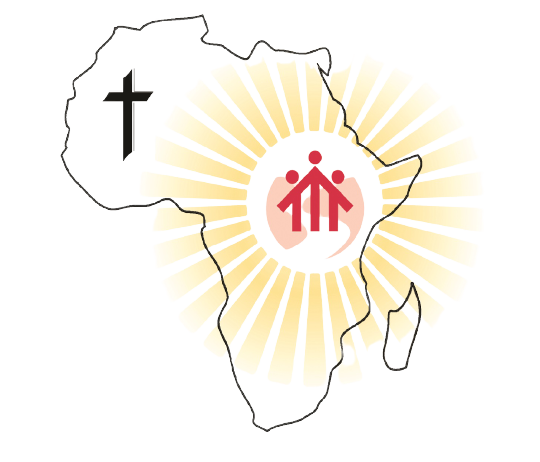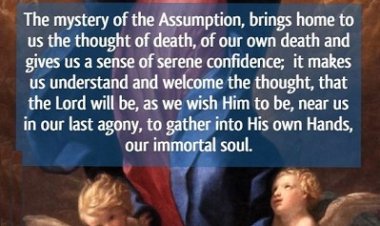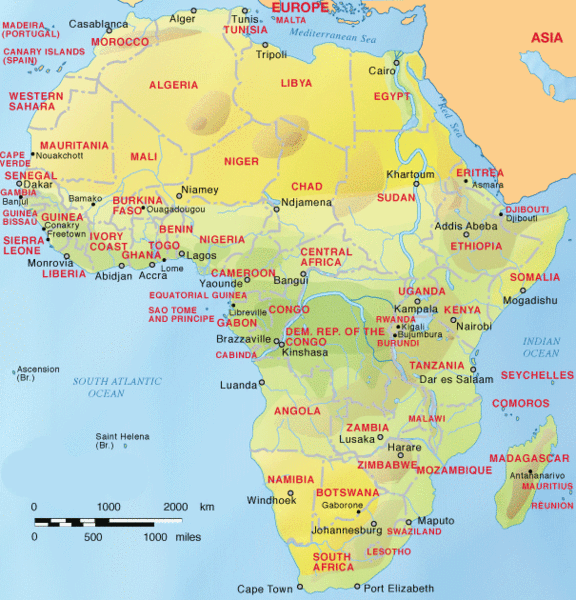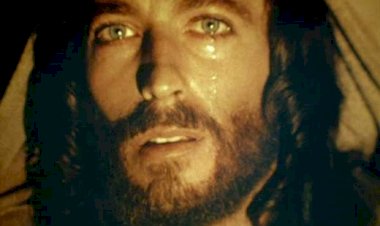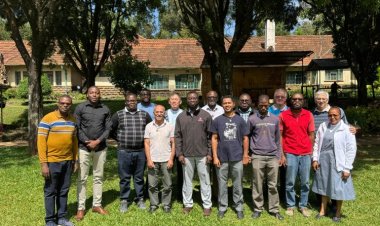A priest’s musings on Vocations Sunday!
especially for the annual vocation Sunday sermon

A priest’s musings on Vocations Sunday!
People often imagine that those who have vocations to the priesthood or religious life, have heard divine voices or seen visions informing that this is what God called the to. Meanwhile they feel that marriage cannot be classed as a vocation, because they have not heard voices or seen visions calling them to marry Paul or Theresa or Sipho or Thandi. Extraordinary or supernatural callings like St Paul's on the way to Damascus do exist, but they're extremely rare! Most of us are called in very quiet ordinary ways, by God's inspiration in the depths of our hearts and through our relationships with others, to our respective vocations of marriage or of lives consecrated to God. I get really annoyed when people use the term vocation to refer exclusively to priests, brothers and sisters, ignoring that marriage is a vocation in the full sense of the word. All the more so when I hear remarks like: "Marriage is for those who do not have a vocation" or "Marriage is a second-class vocation".
Marriage is a special call, from God, to two people, to live in love, as co-workers with God, in his plan of creation and salvation. And that is a vocation of equal worth to religious life and the priesthood. The idea that marriage is a vocation is not a new fashionable idea invented by Vatican II or by modern theologians. St Paul, a few years after Christ's death, already tried to put into words this view of marriage as a sacred call when he wrote to the Ephesians: "I beg you to lead a life worthy of the vocation to which God called you; with humility and patience, supporting one another in love, eager to maintain the unity of the Spirit in your bond of marriage". In their marriage therefore, couples are called to love God through their spouse. God's love will be made visible in their love for each other. St Paul suggests that without Christian marriages, there would be no proper signs of Christ's love for the church. For it is "Christian marriage (which) mirrors the love that God has for mankind and the love that Christ has for the church." The way God tells the world that he loves us in flesh and blood terms is particularly through Christian marriage. Husbands and wives are called to make real for each other, for their children, their friends and neighbours, their fellow parishioners, the love of God for the world. We do well to remember that the scriptures prefer this image to that of the prophets’ concern for their people, or the parish priests’ (pastors’) devotion to their parish community.
I consider married couples to be fellow ministers of Christ's love through their sacrament of marriage as much as I consider myself a minister of Christ's love in the other sacraments. Just as Jesus in the Eucharist transforms bread and wine into his body and blood, he transforms the parenting of spouses, their lovemaking, their forgiveness of each other, their hospitality to others, into sacramental signs which promote their holiness and inspires it in others. Their married vocation is grace for the world.
Married people also think that we celibate clergy have a sour grapes attitude to marital life. On the contrary, I wish to assure them that their love is one of the most valuable treasures both for the church as a whole and to me in particular. To witness my married friends' love, to visit the home of a happy family, is always a tremendous "tonic" to me. When I visit a couple who are happily married after several years of marriage, I see in them the sign of God's love. I have had married couples telling me how much it means to them to see me really dedicated to the work of God: that this inspires them to love each other to the same degree as I appear to love God. Well, the feeling is reciprocal! When I see my married friend's love for each other, it inspires me to love God as much as they love each other. And the more they are in love, the more it strikes me! Seeing their mutual love, I say to myself: "WOW! That's how God loves me, and that's how I must love him. As they are faithful to each other, so must I be faithful in my own consecration to God. Just as they are called to love God totally through each other, so am I called to love God through his people. Their being in love is an example to me of how I must be in love with God and his people. Such couples live out what I tend to only talk or preach about. They are the real living flesh and blood examples of God's love. And the world prefers to see a sermon rather than have to listen to one! Couples can have more influence on fellow parishioners than their parish priest even.
Marriage is a sacrament of ordination which assigns to the married a first-class vocation in the church. Unfortunately, the significance of that statement is not appreciated. A couple does not only receive the sacrament of matrimony; they become a sacrament, the incarnation of God's love for the rest of their lives. That is the vocation which they are entrusted with. By their simple example, they are called to be a wonderful sermon for the world. I only wish all catholics could grow more conscious of the significant role the sacramental couple need to play in the mission of the church.
There are so few priestly ordinations these days that each ordination becomes a major diocesan event. Everyone in the diocese is informed about it and invited...Well I think that marriages between sincere and committed Christians (these have unfortunately become very rare too!), should have the same status. They must be considered ordinations - events which concern not only the two families and friends, but the whole church! The married are called to put their love at the service of the Kingdom of God. Their marriage is not to be just a nice celebration organised by parents filled with affection for their children as they leave home to found their own home and family. Marriage needs to be understood as the official declaration that a couple are assuming a new vocation among us. Their consecration before God in the wedding ceremony summons everyone to: "Come! Look! Listen! There before you! - there's a living breathing sacrament. Approach it with reverence!"
And those who neglect their sacramentality cause as much harm to the church as a lazy or weak or unfaithful priest would do. Part of the calling of the married is also to be examples to other couples and to us priests, of what it means to live in love, to live in God. You know, the most serious vocation crisis at present is not the lack of priests, sisters and brothers. It is the lack of married couples with a strong sense of vocation and commitment to their marriage! And those married couples who do have that sense of vocation will be the ones who will inspire their children to discern their own vocations to religious life or priesthood.
- Francois Dufour sdb
